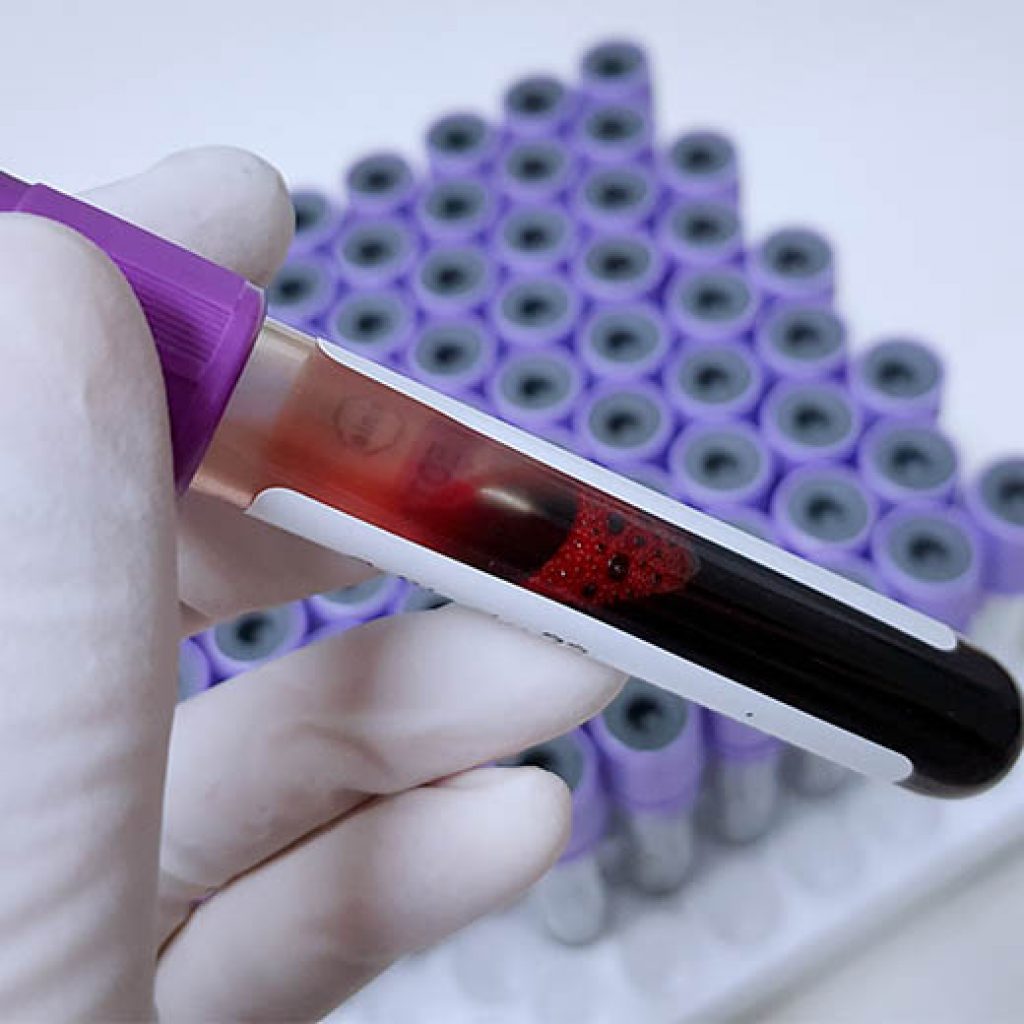Many people do not develop any symptoms of liver problems in initial stages, but blood tests may reveal damage to your liver cells even at early stages.1
Why do blood values change in liver cirrhosis?
As cirrhosis progresses, the damage to the liver tissue makes it increasingly difficult for the liver to do its normal jobs.1 It may no longer be able to filter the blood as normal, leading to the build-up of toxins.2 It becomes progressively more difficult for the liver to produce the substances it normally produces, such as albumin.3 In addition to this, damaged liver cells send out chemical signals to your body, which can be detected as changes in the levels of certain blood values.3
Liver function tests
Liver function tests are blood tests done in people with cirrhosis to both diagnose and monitor the progression of the disease.3 These tests measure the levels of substances3 such as:
- Albumin4
- Bilirubin5
- Platelets6
- Liver enzymes3
- Prothrombin time3
Albumin
Albumin is an important protein produced by liver cells and is primarily responsible for making sure that the fluid inside our blood vessels doesn’t leak into the surrounding tissues. In severe liver disease, the liver has a hard time making albumin, so low levels of albumin are present in the blood.4
Bilirubin
Bilirubin is a breakdown product of mainly hemoglobin, the substance in our blood cells which is responsible for the transport of oxygen in our blood. The liver normally processes bilirubin, which is then transported to the intestines to be excreted. If the liver function is impaired, however, bilirubin can’t be expelled from our body, therefore its levels tend to rise in the blood.5
Platelets
Platelets are proteins that are involved in blood clotting response after an injury. The liver produces them and another organ called the spleen breaks them down. As liver disease progresses, there may be decreased production of platelets in the liver, and the spleen may also become abnormally enlarged, causing more platelets to be broken down.6
Liver enzymes
There are a number of liver enzymes that are routinely tested for in liver cirrhosis.3
Alanine transaminase (ALT), Aspartate transaminase (AST) and Alkaline phosphatase (ALP) are liver enzymes that helps liver cells metabolize proteins. In cirrhosis, ALT and AST are released into the bloodstream and as a result, blood levels of both enzymes increase.3
Gamma-glutamyltransferase (GGT) and L-lactate dehydrogenase (LD) are other enzymes that can be found in the blood at higher than normal levels in people with liver disease.3,7
Prothrombin time
Prothrombin time (PT) is a measure of the time it takes your blood to clot. Liver damage can cause PT to increase, but it can also be elevated if you are taking blood-thinning drugs.3 Another blood clotting value that can also be measured is the INR (International Normalized Ratio), which is increased in liver damage.8
Are there other liver function tests?
Yes. The liver performs hundreds of different functions every day, so depending on your personal situation, your healthcare team may choose to measure a number of other blood values in addition to the ones mentioned above.8

Additional Information
References:
- British Liver Trust. Cirrhosis of the liver. Available at: https://britishlivertrust.org.uk/information-and-support/living-with-a-liver-condition/liver-conditions/cirrhosis/(accessed September 2020)
- Bergen T et al, Healthline. Gamma-Glutamyl Transpeptidase (GGT) Test. 2018. Available at: https://www.healthline.com/health/gamma-glutamyl-transpeptidase (accessed September 2020)
- Mayo Clinic. Liver function tests. Available at: https://www.mayoclinic.org/tests-procedures/liver-function-tests/about/pac-20394595 (accessed September 2020)
- Moman R et al, Stat Pearls. Physiology, Albumin. 2020. Available at: https://www.ncbi.nlm.nih.gov/books/NBK459198/ (accessed September 2020)
- Kalakonda A et al, Stat Pearls. Physiology, Bilirubin. 2020. Available at: https://www.ncbi.nlm.nih.gov/books/NBK470290/ (accessed September 2020)
- Kurokawa T et al, World Journal of Gastroenterology. Platelets in liver disease, cancer and regeneration. 2017. 23(18):3228–3239
- Lowth M et al, Patient. Abnormal Liver Function Tests. 2017. Available at: https://patient.info/digestive-health/abnormal-liver-function-tests-leaflet (accessed September 2020)
May 2021. GL-HEP-XIF-2000182




